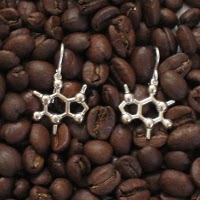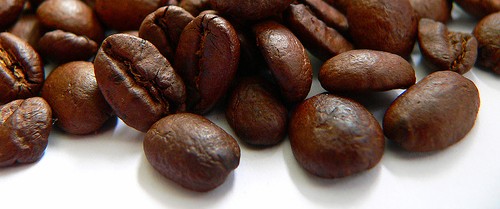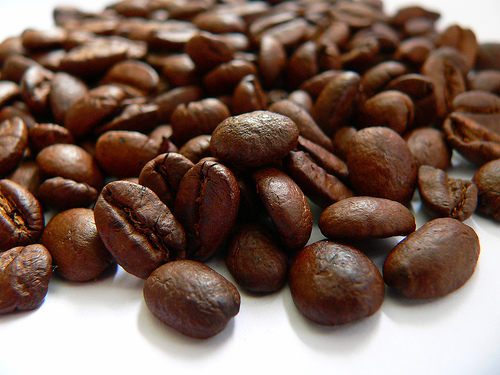Caffeine Effects when taken in moderation

Cas No. [58-08-2]
Overview of the more common side effects of caffeine, possibly
appearing even at levels below overdose.
The precise amount of caffeine necessary to produce effects varies
from person to person depending on body size and degree of tolerance
to caffeine. It takes less than an hour for caffeine to begin
affecting the body and a mild dose wears off in three to four hours.Consumption of caffeine does not eliminate the need for sleep,
it only temporarily reduces the sensation of being tired throughout
the day. In general, 25 to 50 milligrams of caffeine is su fficient
for most people to report increased alertness and arousal as well as
subjectively lower levels of fatigue. fficient
for most people to report increased alertness and arousal as well as
subjectively lower levels of fatigue.
With these effects, caffeine is an ergogenic, increasing a person's
capability for mental or physical labor. A study conducted in 1979
showed a 7% increase in distance cycled over a period of two hours
in subjects who consumed caffeine compared to control subjects.Other
studies attained much more dramatic results; one particular study of
trained runners showed a 44% increase in "race-pace" endurance, as
well as a 51% increase in cycling endurance, after a dosage of 9
milligrams of caffeine per kilogram of body weight.Additional
studies have reported similar effects. Another study found 5.5
milligrams of caffeine per kilogram of body mass resulted in
subjects cycling 29% longer during high intensity circuits.
Caffeine citrate has proven to be of short and long term benefit in
treating the breathing disorders of apnea of prematurity and
bronchopulmonary dysplasia in premature infants. The only short-term
risk associated with caffeine citrate treatment is a temporary
reduction in weight gain during the therapy, and longer term studies
(18 to 21 months) have shown lasting benefits of treatment of
premature infants with caffeine.
Caffeine relaxes the internal anal sphincter muscles and thus should
be avoided by those with fecal incontinence.
While relatively safe for humans, caffeine is considerably more
toxic to some other animals such as dogs, horses, and parrots due to
a much poorer ability to metabolize this compound. Caffeine has also
a pronounced effect on mollusks and various insects as well as
spiders.
Further information: Effect of psychoactive drugs on animals

>>
New Product
Introduced :
Oseltamivir
Phosphate,
Phenyl Propanolamine,
Phenylephrine,
Etafedrine

|

 We all know that one of the most
powerful chemical compounds found in both coffee and tea is
caffeine. Has caffeine become an important part of your daily life?
Did you know We all know that one of the most
powerful chemical compounds found in both coffee and tea is
caffeine. Has caffeine become an important part of your daily life?
Did you know
Article : What Is Caffeine?
 Caffeine is a drug that is naturally
produced in the leaves and seeds of many plants. It's also produced
artificially and added to certain foods. Caffeine is defined as a
drug because it stimulates the central nervous system, causing
increased alertness. Caffeine gives most people a temporary energy
boost and elevates mood. Caffeine is a drug that is naturally
produced in the leaves and seeds of many plants. It's also produced
artificially and added to certain foods. Caffeine is defined as a
drug because it stimulates the central nervous system, causing
increased alertness. Caffeine gives most people a temporary energy
boost and elevates mood.
Caffeine is in tea, coffee, chocolate, many soft drinks, and pain
relievers and other over-the-counter medications. In its natural
form, caffeine tastes very bitter. But most caffeinated drinks have
gone through enough processing to camouflage the bitter taste.
Teens usually get most of their caffeine from soft drinks and energy
drinks. (In addition to caffeine, these also can have added sugar
and artificial flavors.) Caffeine is not stored in the body, but you
may feel its effects for up to 6 hours.
![Caffeine Cas No. [58-08-2]](caffeine/CAFFEINE%20LOGO%20SMALL.bmp)
|


